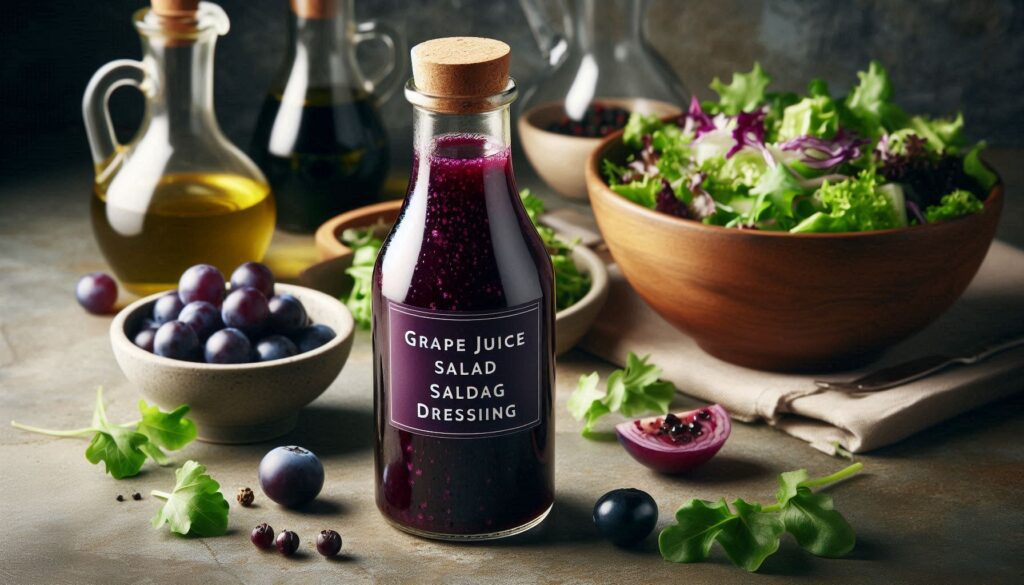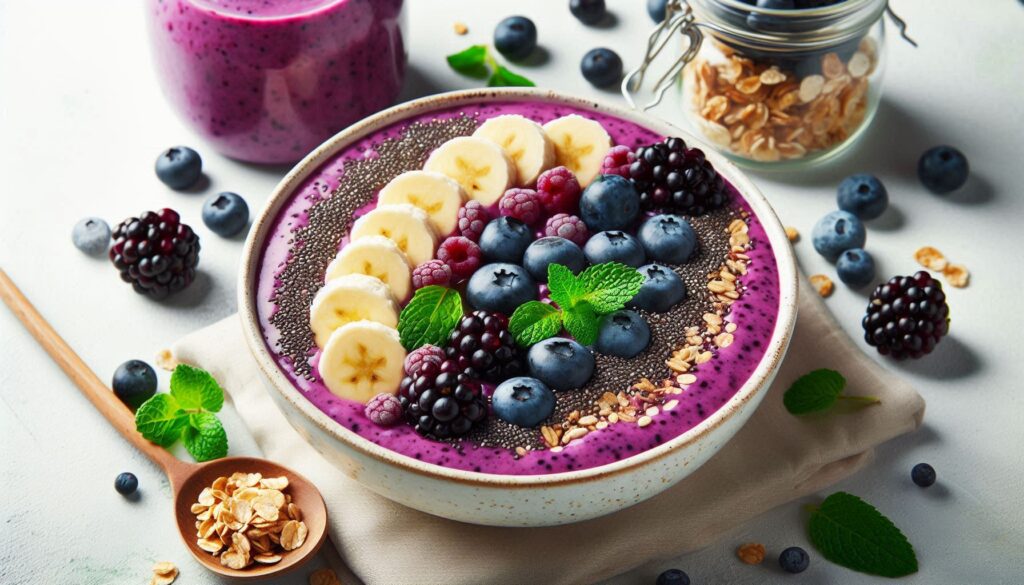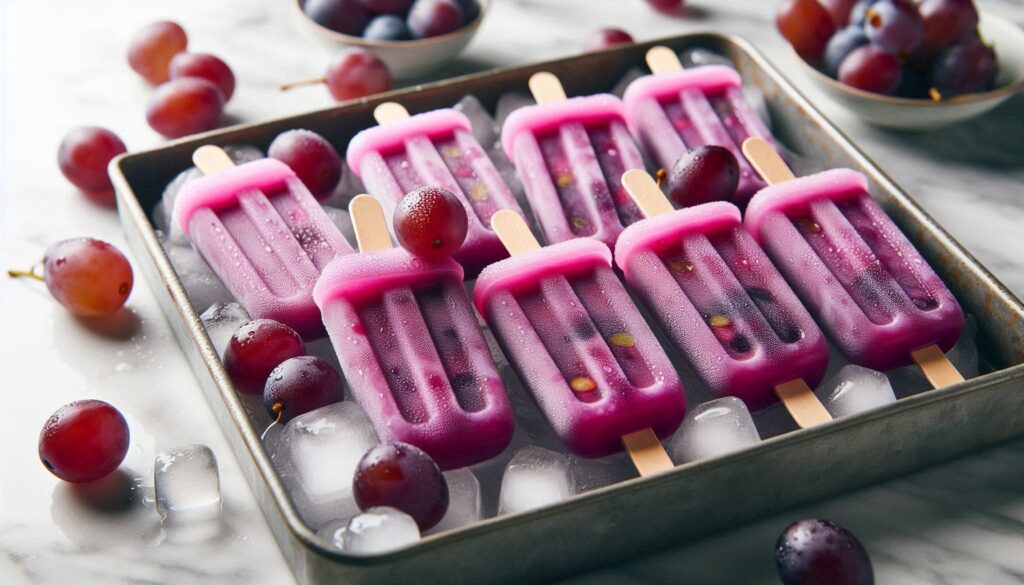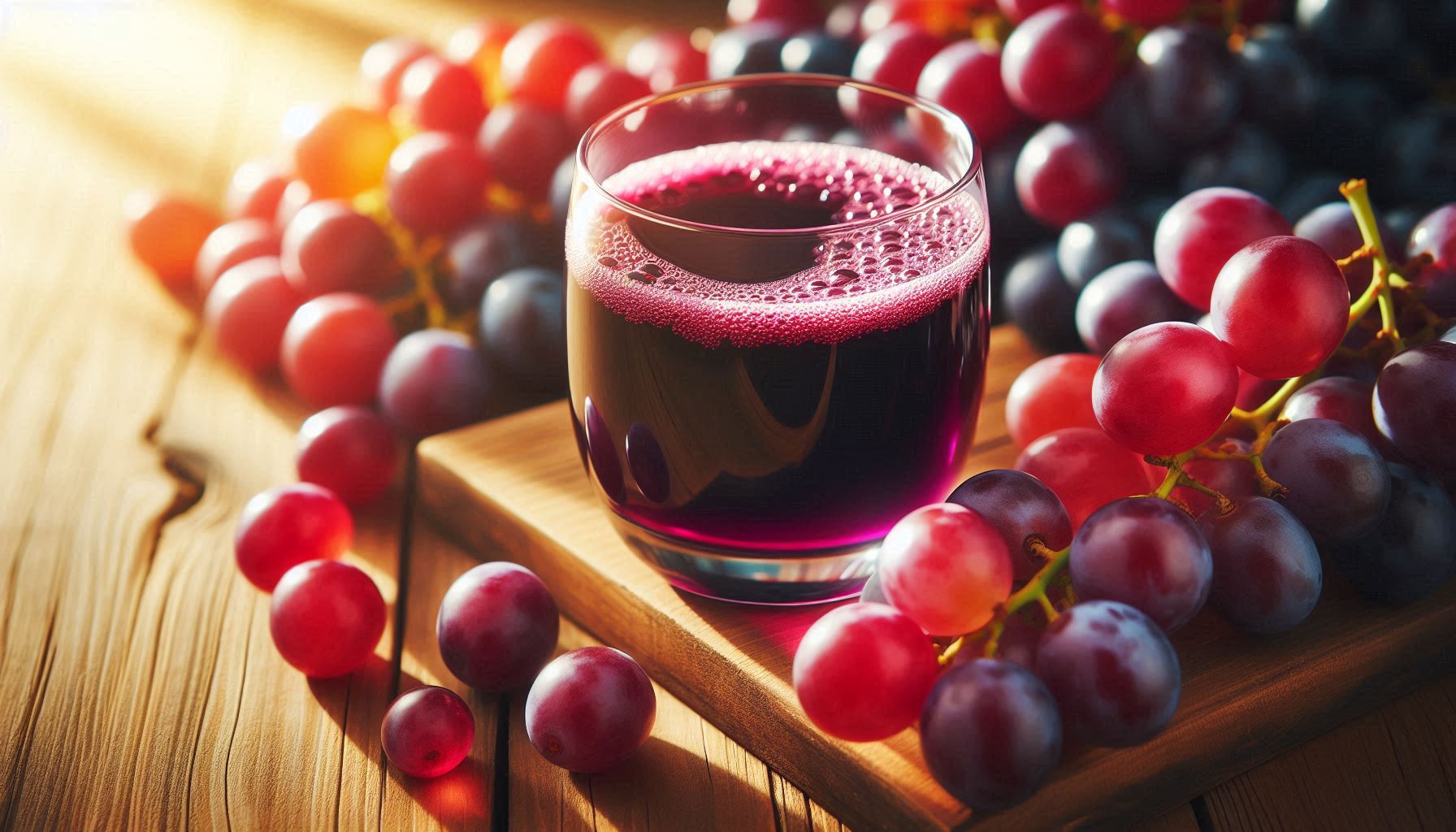Grape juice Nutritional Profile
- Calories: 60-70 kcal
- Carbohydrates: 15-18 g
- Sugars: 15-16 g
- Fiber: 0.5 g
- Vitamin C: 10-15% of the daily value (DV)
- Vitamin K: 18% of the DV
- Potassium: 5% of the DV
- Antioxidants: Polyphenols like resveratrol, flavonoids, and tannins
- These compounds are particularly beneficial for heart health, immune function, and overall well-being.

Health Benefits of Grape Juice
- Lower Blood Pressure: Drinking grape juice may help lower blood pressure by improving blood flow and relaxing blood vessels.
- Lower Bad Cholesterol (LDL): Research suggests that consuming grape juice on a regular basis may help lower LDL cholesterol levels, which in turn may lower the risk of heart disease.
- Increase Circulation: Grape juice’s polyphenols contribute to blood vessel elasticity, which can increase circulation and lower the risk of blood clots.

Choosing the Right Grape Juice
- Opt for 100% Pure Grape Juice: Steer clear of grape-juices that have artificial ingredients or added sugar. Make sure you’re getting 100% pure juice by reading the label.
- Red or Purple Grape Juice: When compared to green grape-juice, these varieties typically contain higher levels of antioxidants, especially resveratrol.
- Fresh Squeezed or Cold Pressed: The best grape-juice is cold pressed or freshly squeezed, as it contains the highest amount of antioxidants and nutrients. Juices purchased from stores may lose part of their nutritional content during processing.
Precautions and Considerations
- Dilute the Juice: Consider diluting grape-juice with water or sparkling water if the sugar level worries you. By doing this, you can still enjoy the flavour and benefits but with fewer calories.
- Dental Health: Like other fruit juices, grape-juice has an acidic content that, if ingested in excess, may erode tooth enamel. Use a straw to reduce grape-juice contact with your teeth or rinse your mouth with water after consuming grape-juice.

Q.1) How long can grape juice sit out?
Answer :- Grape-juice should not be left out for longer than two hours at room temperature. Bacteria can continue to thrive after this point, particularly if the temperature is higher than 40°F (4°C). Juice should be thrown out if left out for an extended period of time to reduce the chance of foodborne illness.
Q.2) Does grape juice have electrolytes?
Answer :- Indeed, potassium, one of the electrolytes included in grape-juice, aids in maintaining fluid balance and controlling muscular activity. It lacks the electrolyte content of coconut water or sports drinks, though. It can help with hydration, but it's not usually the go-to source for regaining electrolytes after strenuous exercise.
Q.3) Is it safe to drink grape juice everyday?
Answer :- Because grape-juice contains vitamins, antioxidants, and heart health advantages, it is safe to drink in moderation on a daily basis. It is crucial to restrict consumption, particularly for individuals with diabetes or those monitoring their blood sugar levels, because to its naturally high sugar content. Diluting can help you consume less sugar.
Q.4) Is grape juice heat or cold?
Answer :- In general, grape-juice is regarded as a refreshing beverage. Particularly in warm weather, it feels refreshing and aids in the body's hydration. Because of its high water content and natural sugars, it is better suited for hot areas or summer drinking since it is perfect for cooling down and replacing lost fluids.
Q.5) Does 100% grape juice expire?
Answer :- 100% grape-juice can, in fact, become bad. Once opened, it keeps for around 7 to 10 days and needs to be refrigerated. When kept properly, it can remain unopened for several months. Freshly squeezed juice may not last as long as pasteurized juice. Prior to consumption, always notice any changes in look, taste, or smell.
- Chicken Tikka Masala Recipe in 30 Minutes
- Butter Chicken Recipe in 30 Minutes
- Cheesy Garlic Bread Recipe In 30 minutes
